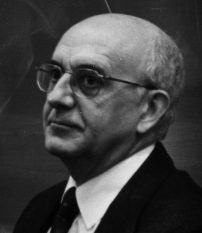Public Committee Against Torture in Israel 7 July 2003

The first president of the International Criminal Tribunal for the Former Yugoslavia and world renowned expert on International Humanitarian Law, Professor Antonio Cassese.
The High Court of Justice today, July 8, 2003, held a hearing on the petition submitted by the Public Committee Against Torture in Israel (PCATI) and LAW-The Palestinian Society for the Protection of Human Rights and the Environment against the State of Israel’s policy of assassinations. Chief Justice Aharon Barak and Justices Theodore Or and Eliyahu Matza denied the request made by the petitioners, represented by attorneys Avigdor Feldman and Michael Sfard, for an interim injunction prohibiting the government from ordering the army to carry out assassinations and prohibiting the army from executing these orders.
In his 20-page opinion submitted by the petitioners to the Court, Professor Antonio Cassese states that the killing of civilians suspected of terrorist activities, if not carried out while they are directly engaged in these activities, is a blatant violation of one of the most fundamental tenets of international law – the obligation of warring sides to distinguish between combatants and civilians. Professor Cassese opinion is considered unprecedented in its severity due to the fact that he is considered a world renowned expert in International Humanitarian Law and due to his prestige among international experts in the field.
Attorneys Avigdor Feldman and Michael Sfard argued at the hearing that the State plans assassinations which have no relation to “ticking bombs” and manipulate and stretch to the extreme the definition of this term in order to permit assassinations which are a violation of Israeli and international law. Observers from Human Rights Watch and Lawyers Without Frontiers (Belgium) were present at the hearing. Amnesty International submitted a document supporting the petition to the Court.
The petitioners expressed their great disappointed at the Court’s denial of the interim injunction and stated that they had hoped that the High Court of Justice would intervene and put a stop to the policy of assassinations which is both contrary to international and Israeli law and immoral. “Legal intervention is necessary in a state where the air force commander sleeps peacefully after ordering a one- ton bomb dropped into a populated area killing women and children. This intervention is justified by International Humanitarian Law whose purpose is to limit the use of force in situations of conflict and war. The judiciary system must intervene and enforce international law. Inaction is the equivalent of collaboration”.
The petitioners added that, unfortunately, the denial of the interim injunction promises the further killing and injury of innocent persons and endangers the chances for reconciliation between the two people.
Related Links: